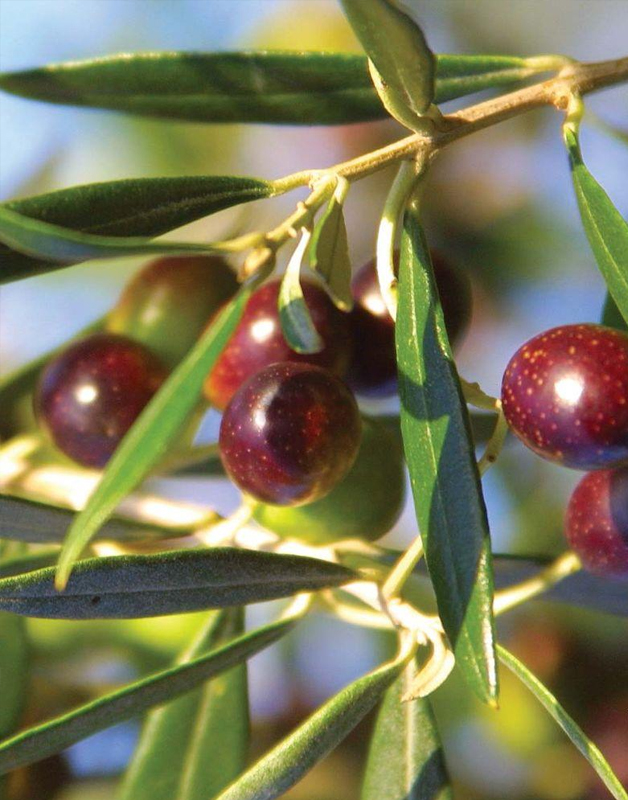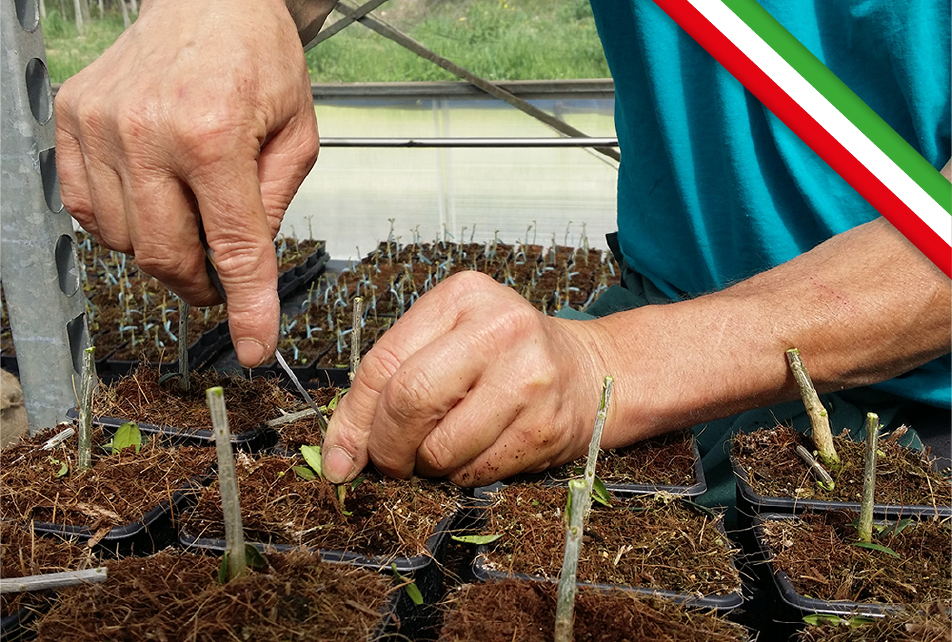Koroneiki
Super high density olive plants

Origin
Koroni, Kritikia, Ladolia e Psylolia (Greece)

Vitality
Average

Canopy
Erect

Crown
Open

Planting
pattern
4x1,5 m
1666 plants per ha

Yield
Olive/Ha
3rd year: 50 / 80qt
4th year: 100 / 120qt
From the 5th year: over 150qt
The Koroneiki plant is a variety from Greece, where it is also known as Koroni, Kritikia, Ladolia and Psylolia. Due to its characteristics it is a very widespread plant in its area, which occupies 50-60% of the olive-growing area. To be one of the varieties used in super-intensive plantations, Koroneiki is starting to conquer many other countries on different continents.
The low vitality and the open posture make it a very high productivity plant, with a fat yield of about 20% and with an excellent and very stable oil quality over time. For such obvious reasons the Koroneiki variety has become of great interest for super-intensive plantations. The plant is resistant to foliar maculation, while it is susceptible to tuberculosis and Verticillium. It is also resistant to drought.
Regarding its characteristics, we can illustrate:
- the leaf, elliptical in shape, with hyponastic curvature and with a smooth and pubescent under surface
- the fruit, green in color and with a slightly asymmetric oval elliptical shape
- the small, ovoid-shaped core with an asymmetrical truncated base. The surface is unequal with few fibrovascular grooves with a medium depth.

Buccelletti, for the integrated Livita Plus system, uses Koroneiki olive tree from our mother plant plant located in Castiglion Fiorentino (AR) in Tuscany, certified by the National Research Council and Massa Spin-off, virus and bacteria free. All plants have a CAC certificate (Conformitas Agraria Communitatis).


